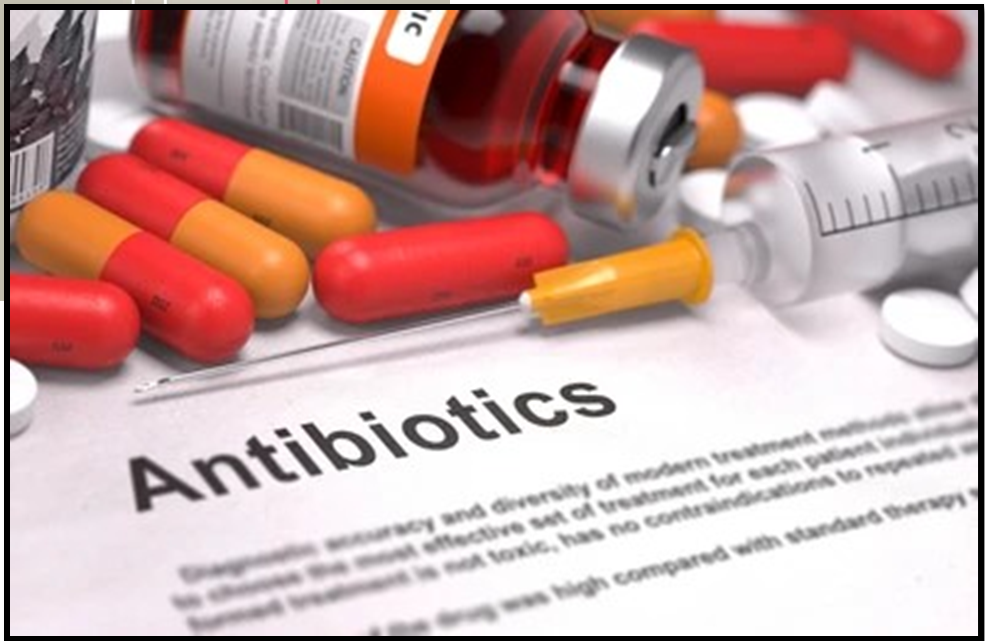HIDDEN DANGERS OF IRRATIONAL USE OF ANTIBIOTICS ON MICROBIOME
Relevance
- GS 2 – Health
- GS 3 – Science and Technology
Focus
- This article investigates the major but frequently neglected effects of irrational antibiotic usage on the human microbiota.
- It demonstrates how even a single round of antibiotics can cause dysbiosis, a change in the equilibrium of gut bacteria with serious and long-term consequences for health
Context
- Misuse of antibiotics has caused serious and lasting damage in the human, animal, and agricultural sectors, despite their reputation as life-saving treatments.
- The most pernicious of them is the significant disturbance they induce to the human microbiome, which spreads to almost every organ system in the body.
Key Issues
The Role of Microbiome:
- Diverse Microorganisms: The human body has a complex community of microorganisms known as the microbiome, which includes bacteria, fungus, and viruses. The gut alone contains roughly 38 trillion microbial cells, which outnumber human cells by a factor of about 1.3:1.
- Crucial Functions: These microorganisms play an important role in nutritional production (such as vitamin K), immune system modulation, pathogen protection, and overall human health.
Irrational Antibiotic Use and Its Consequences:
- Disruption of Balance: Antibiotics, particularly broad-spectrum ones, can wipe out huge parts of the gut microbiota, resulting in dysbiosis. Even with a single course of antibiotics, this disturbance can have substantial, long-term consequences.
- Health Implications: Dysbiosis has been related to a variety of health problems, including IBD, IBS, obesity, eczema, psoriasis, diabetes, and metabolic syndrome. Disruptions in gut microbiota can compromise immune function, rendering the body more vulnerable to infections and autoimmune disorders.
Antibiotics and Gut Health:
- Impact on Immune Function: The gut microbiota regulates the immune system. Dysbiosis can disturb this balance, raising the risk of chronic illnesses such as Crohn’s disease, asthma, and potentially some types of cancer.
- Brain-Gut Axis: The gut-brain axis connects the gut microbiome to the brain, which influences behaviour and neurodevelopmental diseases. Disruptions in this axis can lead to mental health problems such as depression and anxiety.
Antibiotic Resistance and Broader Implications:
- Antimicrobial Resistance (AMR): Misuse of antibiotics causes the development of resistant bacteria strains, rendering traditional treatments ineffective and resulting in longer illnesses, higher medical expenses, and increased mortality.
- Global Health Threat: AMR is a developing worldwide health hazard, threatening to reverse decades of medical progress. The World Health Organization (WHO) has identified AMR as one of the top 10 worldwide public health issues.
The Need for Judicious Use:
- Selective Prescribing: It’s critical to only prescribe antibiotics when absolutely essential and to select the appropriate kind of medication. Judicious use also entails following the recommended courses to the letter in order to avoid the emergence of resistance.
- Alternative Therapies: One way to lessen the overuse of antibiotics is to investigate and invest in alternative therapies like probiotics and bacteriophage therapy.
Case Studies
Statistical Data
|
Future Directions
- Public Awareness and Education: It’s critical to inform the public about the dangers of overusing antibiotics and the significance of maintaining a healthy microbiome. Campaigns for public health should highlight the risks associated with self-prescribing and the necessity of finishing recommended antibiotic treatments.
- Tightening Regulations: To regulate the over-the-counter distribution of antibiotics and their application in agriculture, more stringent rules are required. Finland and other EU countries that have successfully lowered AMR through strict rules are good models for other countries to follow.
- Research and Development: Funding can be allocated towards investigating substitute treatments, including probiotics and bacteriophages, which can yield efficacious remedies without the potential hazards linked with antibiotics. Furthermore, investigating the function of the microbiome in health and illness is crucial to creating focused therapies.
- Global Cooperation: As a worldwide problem, AMR necessitates a multinational response that is coordinated. To effectively address AMR, nations should cooperate in the areas of surveillance, data sharing, and the creation of international legislation.
Conclusion
Irrational antibiotic usage endangers global health by altering the microbiome and contributing to the growth of antimicrobial resistance. The global community can reduce these hazards and protect public health by supporting responsible use, improving regulations, and investing in alternative cures.
Mains Question
Examine the impact of irrational antibiotic usage on human health, with a special emphasis on the microbiome and antimicrobial resistance. Discuss the steps required to address these difficulties.
(250 words)




